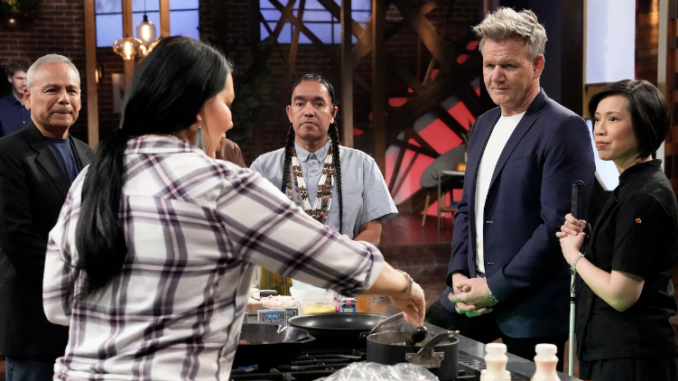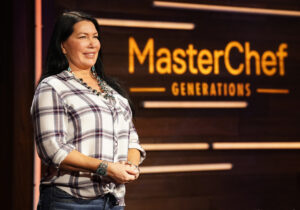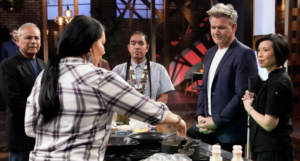
The new season of “MasterChef” is subtitled “Generations,” because the contestants selected are representing four age groups, Baby Boomers, Gen X, Millennials and Gen Z. The auditions wrapped up with the episode that aired Wednesday, June 19, and a second Portland-area cook was chosen to compete on the Gordon Ramsay-led show.
The Gen X auditions kicked off with host Ramsay and his fellow judges Aarón Sánchez and Joe Bastianich noting that they’re all members of Gen X, people who are in their early 40s to late 50s. They welcomed guest judge, Christine Hà, the “MasterChef” Season 3 winner, who’s also a Gen Xer.

Hà said she thought Gen X cooking wasn’t influenced by the Internet, and that it’s “cooking from the soul.” Ramsay said that in this round of auditions, “I want sparks. I want flavor profile like never before.”
Among the hopefuls was Sunshine Carlos, who said she’s a 50-year-old yoga instructor from Portland. “I love representing Gen X because I was raised by Boomers and I’ve been raising Millennials,” Carlos said, “and I think that gives us a really good advantage.”
Carlos said she was a member of the Lakota Sioux tribe. “I grew up participating in powwows and learning about my people and our culture,” she said. “When I cook, I don’t waste any of the ingredients, and that definitely comes from my heritage, as we use every part of the animal. There’s nothing that goes to waste. It’s something that’s been ingrained in me. And so it comes out when I cook.”

Sánchez and Bastianich spoke with Carlos while she was preparing her dish, which included pan-seared halibut. The fish is tricky, Bastianich said, “because it can get mealy if you overcook it, but you definitely want it cooked through.”
Bastianich asked Carlos what she does, and she said she’s a yoga instructor. “You know, food, breath, life, mind, meditation.”
She then led Sánchez and Bastianich in a breathing exercise, instructing them to “exhale out all your stale air, and stand strong.” She told them to take a deep inhale, and raise their hands up over their hand, a move that made Bastianich say, “Owww.”
Carlos said of her dish — pan-seared halibut on top of a summer succotash and a creamy polenta — that it was “definitely Indigenous, born from the ground up. I brought the roots of my people on the plate.”

As she presented the dish to Ramsay, Hà, Sánchez and Bastianich, Carlos said, “Succotash is actually an Indigenous word. It means ‘broken pieces of corn,’ so this is an elevated dish to honor my ancestors.”
Sánchez praised the dish as simple and complex at the same time, and that the deepness and richness of flavor Carlos achieves in an abbreviated amount of time shows that she knows how to handle ingredients. He voted yes, for Carlos to move on to the next phase of the competition.
Hà said the fish was cooked well, and she was gave Carlos a “hundred percent” yes vote.

Ramsay was less enthusiastic, saying that his fish was slightly dry and the polenta was “a touch on the bland side.” He loved the succotash, but wasn’t in love with the way Carlos cooked the fish, so he voted no.
That left Bastianich with the deciding vote. He found the halibut was “aggressively cooked,” but he liked the crust. “I though the dish was awesome,” he said, “so for me, it’s a yes.”
